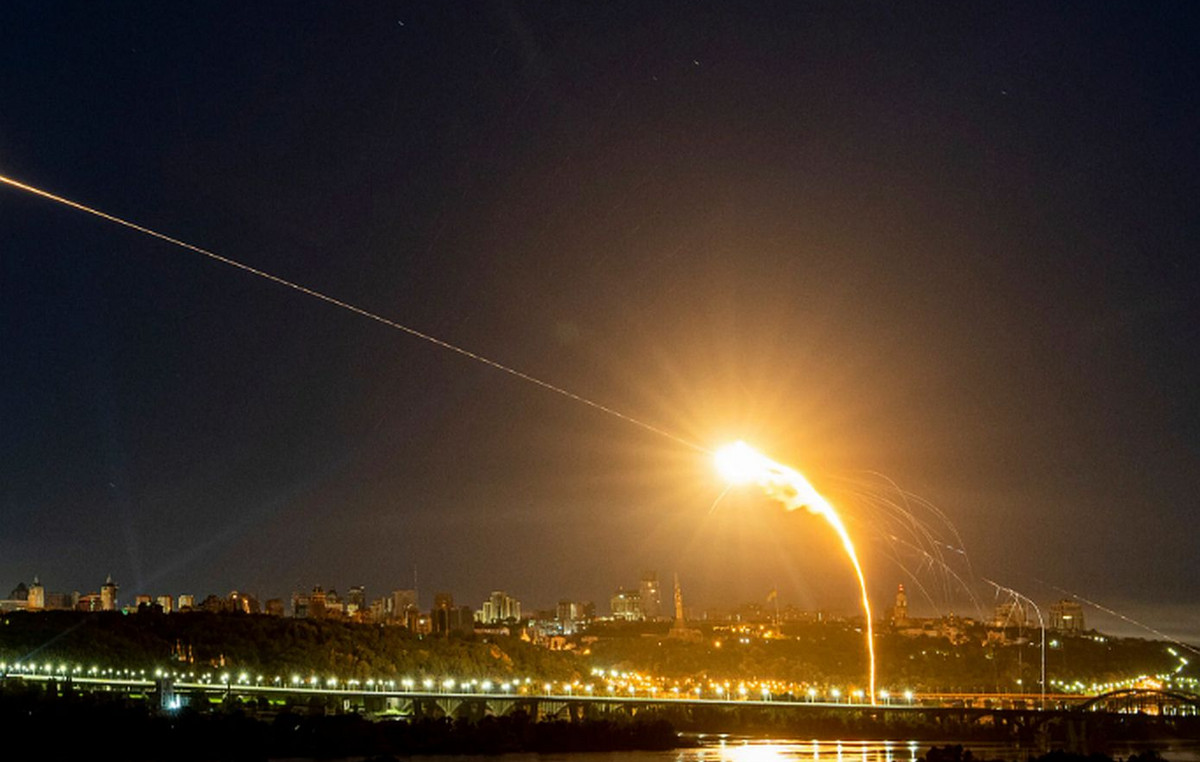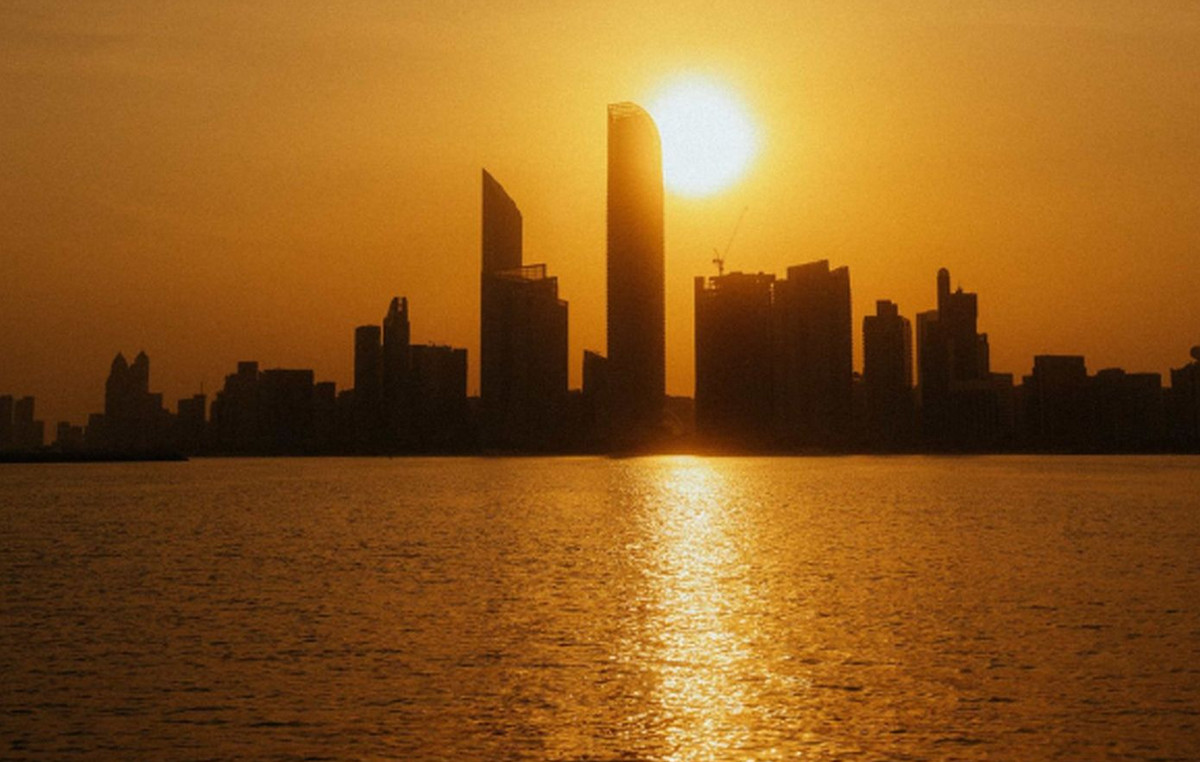Air pollution reached unhealthy levels around the world in 2021, according to a new report.
The report by IQAir, a company that monitors global air quality, found that the average annual air pollution in all countries – and 97% of cities – exceeded the World Health Organization (WHO) air quality guidelines, that are designed to help governments create regulations to protect public health.
Only 222 cities out of 6,475 analyzed had average air quality that met the WHO standard. Three territories met WHO guidelines: the French territory of New Caledonia and the US territories of Puerto Rico and the US Virgin Islands.
India, Pakistan and Bangladesh are among the countries with the worst air pollution, beating guidelines by at least 10 times.
The Scandinavian countries, Australia, Canada, Japan and the UK were among the best countries for air quality, with average levels exceeding the guidelines by 1-2 times.
In the United States, IQAir found that air pollution exceeded WHO guidelines by 2-3 times in 2021.
“This report underscores the need for governments around the world to help reduce global air pollution,” Glory Dolphin Hammes, CEO of IQAir North America, told CNN. “Fine particulate matter kills many people every year and governments need to set stricter national air quality standards and explore better foreign policies that promote better air quality.”
It is the first major global air quality report based on the WHO’s new annual air pollution guidelines, which were updated in September 2021. The new guidelines halved the acceptable concentration of fine particulates – or PM 2.5 – of 10 to 5 micrograms per cubic meter.
PM 2.5 is the smallest pollutant, but also one of the most dangerous. When inhaled, it travels deep into lung tissue, where it can enter the bloodstream. It comes from sources such as the burning of fossil fuels, dust storms and wildfires, and has been linked to a number of health threats, including asthma, heart disease and other respiratory illnesses.
Millions of people die each year from air quality problems. In 2016, about 4.2 million premature deaths were associated with fine particulate matter, according to the WHO. Had the 2021 guidelines been applied that year, the WHO found that there could have been nearly 3.3 million fewer pollution-related deaths.
IQAir analyzed pollution monitoring stations in 6,475 cities in 117 countries, regions and territories.
In the US, air pollution increased in 2021 compared to 2020. Of the more than 2,400 US cities analyzed, Los Angeles’ air remained the most polluted, despite a 6% drop from 2020. Atlanta and Minneapolis experienced significant increases in pollution, the report showed.
“The United States’ dependence on fossil fuels, the increasing severity of wildfires, as well as the varying application of the Clean Air Act from administration to administration all contributed to air pollution in the US,” the authors wrote.
Researchers say the main sources of pollution in the US are fossil fuel-powered transportation, energy production and wildfires, which wreak havoc on the country’s most vulnerable and marginalized communities.
“We are very dependent on fossil fuels, especially in terms of transportation,” said Hammes, who lives a few miles outside of Los Angeles. “We can act smart with zero emissions, but we’re not doing that yet. And this is having a devastating impact on the air pollution that we are seeing in big cities.”
Wildfires fueled by climate change played a significant role in reducing air quality in the US in 2021. The authors pointed to several fires that led to dangerous air pollution – including the Caldor and Dixie fires in California, as well as the Bootleg Fire. in Oregon, which smoked up the East Coast in July.
China – which is among the countries with the worst air pollution – had better air quality in 2021. More than half of the Chinese cities analyzed in the report had lower levels of air pollution compared to the previous year. The capital of Beijing continued a five-year trend of improving air quality, according to the report, due to a reduction in polluting industries in the city.
The report also found that the Amazon rainforest, which has acted as the world’s biggest advocate against the climate crisis, has emitted more carbon dioxide than it absorbed last year. Deforestation and wildfires have threatened the ecosystem, polluted the air and contributed to climate change.
“This is all part of the formula that will or is leading to global warming.” said Hammes.
The report also revealed some inequities: monitoring stations remain scarce in some developing countries in Africa, South America and the Middle East, resulting in a dearth of air quality data in these regions.
“When you don’t have that data, you’re really in the dark,” Hammes said.
Hammes noted that the African country of Chad was included in the report for the first time, due to an improvement in its monitoring network. IQAir found that the country’s air pollution was the second highest in the world last year, behind only Bangladesh.
Tarik Benmarhnia, a climate change epidemiologist at the Scripps Oceanographic Institute who has studied the health impact of smoke from wildfires, also noted that relying solely on monitoring stations can lead to blind spots in these reports.
“I think it’s great that they trusted different networks and not just government sources,” Benmarhnia, who was not involved in this report, told CNN. “However, many regions do not have enough seasons and alternative techniques exist.”
The United Nations (UN) Intergovernmental Panel on Climate Change concluded in its 2021 report that, in addition to slowing global warming, restricting the use of fossil fuels would have the added benefit of improving air quality and health. public.
Hammes said the IQAir report is yet another reason for the world to move away from fossil fuels.
“We have the report, we can read it, we can internalize it and really commit to taking action,” she said. “There needs to be a big move towards renewable energy. We need to take drastic measures to reverse the tide of global warming; otherwise, the impact and the train we are on would be irreversible”.
Source: CNN Brasil





